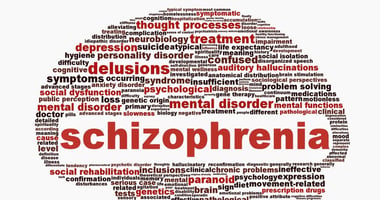Tamoxifen, a medication commonly used to treat breast cancer, appears to hold some promise as a...
Asenapine More Effective Than Placebo in Preventing Recurrence of Mood Episodes in Patients With Bipolar I
 |
Patients with bipolar I disorder are at high risk for recurrences and relapses, noted Armin Szegedi, M.D., Ph.D., of Allergan Pharmaceuticals and colleagues. “Ideally, a compound would control symptoms of both polarities, both acutely and in the long term; however, few treatments have demonstrated this profile,” the authors wrote.
For the study, which was supported by Allergan affiliate Forest Laboratories, adults with bipolar I disorder who were experiencing an acute manic or mixed episode were enrolled in a randomized, placebo-controlled trial consisting of an initial 12- to 16-week open-label period and a 26-week double-blind randomized withdrawal period. The target asenapine dosage was 10 mg twice-a-day in the open-label period but could be titrated down to 5 mg. After completing the open-label period, subjects meeting stabilization/stable-responder criteria (based on Young Mania Rating Scale [YMRS] and Montgomery-Åsberg Depression Rating Scale [MADRS] scores ≤12) were randomized to asenapine or placebo treatment in the double-blind period.
A total of 549 subjects entered the open-label period, of whom 253 enrolled in the double-blind randomized withdrawal period (127 in the placebo group; 126 in the asenapine group). The researchers found that time to recurrence of any mood episode was significantly longer in patients treated with asenapine compared with those treated with placebo.
Asenapine was generally well tolerated. The most common treatment-emergent adverse events were somnolence (10.0%), akathisia (7.7%), and sedation (7.7%) in the open-label period, and mania (11.9% of the placebo group compared with 4.0% of the asenapine group) in the double-blind period.
“Long-term asenapine therapy was more effective than placebo in preventing recurrence of mood events in stabilized adult subjects with bipolar I disorder,” the authors concluded. “The known safety and tolerability profile for asenapine was confirmed in this trial, with no detection of new safety or tolerability signals.”
For related information, see the Psychiatric News article “Diagnosing Possible Bipolar Disorder in Depressed Patients,” by Terence Ketter, M.D.
(Image: iStock/monkeybusinessimages)





